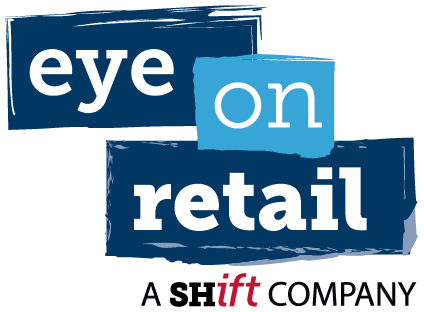Tuesday’s Eye-on-Retail Tipsheet: Sears Hometown Tumbles | Harris Teeter Fights Unions | Publix to NC
“Sears Hometown profit tumbles 57%” at Chicago Tribune. “The company, which spun off from Sears last year, earned $9.1 million, or 40 cents per share, off from $21.1 million, or 91 cents per share, a year earlier. Revenue rose 2.2 percent, to $656.9 million, on a small increase in sales at established stores and a boost from new store openings.” Read more
“Harris Teeter to employees: Let’s keep unions out” by Ely Portillo at Charlotte Observer. “Harris Teeter’s top executives are warning the grocer’s employees about unions after its acquisition by Kroger Co., a supermarket company whose workforce is largely represented by the United Food and Commercial Workers union. “Unfortunately, it appears the United Food and Commercial Workers Union (UFCW) is trying to take advantage of the merger to gain new members,” wrote Frederick Morganthall II, Harris Teeter president.” Read more
“Publix taking fight to North Carolina” by Justine Griffin at Herald-Tribune. “While most in the retail industry scaled back, focusing instead on existing stores and on maintaining profits, Publix Supermarkets surged ahead. The Lakeland-based grocery chain, which has dominated the Florida market with keen customer service and aggressive marketing, is now updating older existing stores and expanding into new markets.” Read more
“UK Online sales grow by 15% in August” by Chloe Rigby at Internet Retailing. “Total retail sales grew by 3.6% in August, with like-for-like sales, stripping out the effect of store openings and closures, up by 1.8%. This, said Dickinson, was evidence of an uptick in consumer confidence.” Read more
“Long CVS receipts spark social media sensation” by Taryn Luna at The Boston Globe. “In one photo, a man holds up a CVS receipt so long it towers above his head. Another features a woman who jokingly uses the paper strip to keep track of her figure. She’s down to her target waistline: half a receipt. The drug store chain’s remarkably long receipts — some, jammed with coupons, are said to reach 6 feet — have become a social media sensation, sparking more than 8,000 Twitter posts that range from gentle ribbings to scathing reproaches.” Read more
“Argentina’s gargantuan knock-off mall: Heading to the U.S.?” by Ian Mount at CNN Money. “It sits in a run-down neighborhood bordering a river fetid with industrial pollution. It’s full of rip-offs. Few of its vendors pay taxes. And it’s as chaotic as a Mad Max sequel. At the same time, it is a successful ad-hoc solution to an economic collapse, a flat, direct-to-consumer model that provides desperately needed jobs, and it might just show the way to a brick-and-mortar version of Amazon. Moreover, as a middle class rises in developing countries like China, it offers a glimpse into the future of brands.” Read more
“Has Tesco really created the supermarket of the future (UK)?” by Alex Johns at The Drum. “As soon as you walk in you know it’s ticking that box in a big way, and that Tesco is really trying to make it different. This is the world of Tesco in front your eyes: you can have a great coffee at Harris + Hoole or grab a snack at Giraffe (which it acquired back in March); buy fashion from the new-look F&F or try the Euphorium bakery.” Read & see more
“Bras in a Box and Netflix-Like Clothing Swaps? New Services Look to Disrupt Online Shopping” by Lauren Goode at All Things D. “Free at-home try-ons. Subscription socks in a box. Monthly doggie treats. Robot-chosen bras. If “regular” online retailers were starting to disrupt brick-and-mortar stores 10 years ago, niche businesses like these now want to change the way we buy our clothes — and nab repeat customers in the process.” Read more
“10 things Generation Y won’t tell you” by Jen Wieczner at WSJ. “Millennials have grown into adulthood with some personality problems that the boomers lacked…including high rates of narcissism, materialism, unrealistically inflated expectations and a startling lack of independence. American college students scored 30% higher on the 40-item Narcissistic Personality Index in 2006 than they did in 1979, for instance, according to a study led by psychologist Jean Twenge of San Diego State University.” Read more
Follow on Twitter @retaileyeretail
